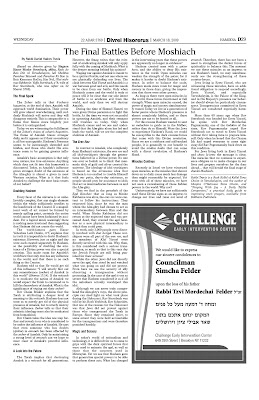Our conference was being held over lunch, but Pat, a middle-aged health-care consultant, did not touch a bite of her food. When I asked if something was wrong, she revealed her lifelong battle with Crohn's disease, an inflammation of the bowels that causes diarrhea and abdominal pain.
I asked what her doctor advised. With some hesitation, she told me she was chiefly being treated by someone she called her "teacher," who helped her use her use qi gong, a Chinese system of breathing and energy exercise, to manage her illness.
She also sees a conventional doctor. But I was struck that this woman, whose job involves ensuring that hospital practices are supported by scientific evidence, had chosen to consult a provider of alternative medicine.
"My teacher looks at me as a whole person," she explained. "He looks at my emotional state, not just my diseased state. . . . He empowers me on how to care for myself. . . . My doctor looks at me just as a disease."
As an MD with two decades of experience, I felt a sense of rebuke. Personally, I am not averse to alternative medicine. Though I was raised and educated in America, I was born in India, where treatments such as ayurveda and yoga originated and where they are perceived as an equivalent method of healing many illnesses. And I use meditation and massage as aids to relaxation.[...]




 There are, however, a minority of Charedi Jews that can benefit and therefore should study these issues. It is simply not for everyone.
There are, however, a minority of Charedi Jews that can benefit and therefore should study these issues. It is simply not for everyone.